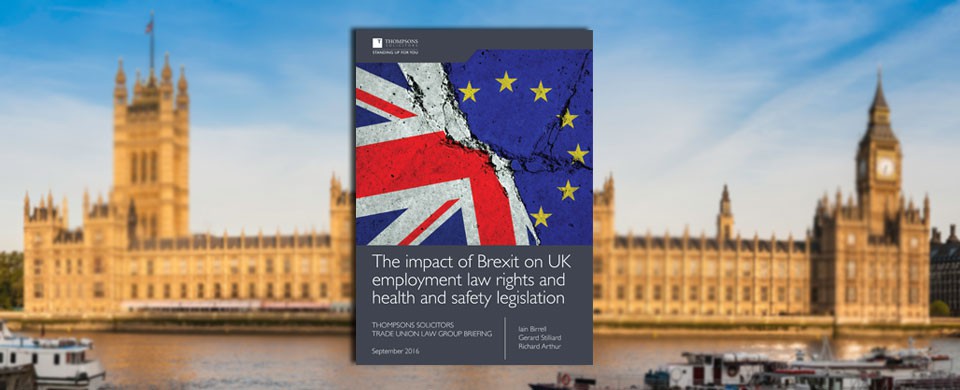Filibuster to block pay for interns highlights risk to rights from Brexit
Paying homage to working people is all the rage in politics at the moment. Donald Trump says he’ll create jobs for the casualties of free trade. Theresa May pledges to “stand up for the weak.”
The promises are many. So far, the actions are few – or even in the wrong direction.
Take the shenanigans during a recent Commons debate on unpaid internships. Tory MP Alec Shelbrooke had proposed a Bill to ban unpaid internships. It was supported by the Labour front bench and would have been passed on a non-partisan basis until the government and a group of Tory backbenchers conspired to thwart it.
Despite constant interruption, Shelbrooke put a powerful case for closing legal loopholes that allow employers to use internships to by-pass minimum wage legislation.
He argued that graduates who cannot afford to do unpaid work were being denied opportunities to advance into jobs for which experience of an internship was advertised as a prerequisite.
To have 22,000 graduates in Britain working for nothing, he said, was a scandal and “a flashback to a Victorian Britain that most of us would not have thought believable”.
But his Bill could not be put to a vote after its two principal Tory opponents, David Nuttall and Philip Davies, each spoke for more than an hour.
Their only argument – once filibustering quotes from case law and think-tank reports are stripped away – was that employers are doing graduates a favour by providing internships and fewer would be offered if they had to be paid.
“It’s usually the employer who is making the sacrifice to give people that opportunity, rather than the other way around,” said Davies.
That may be arguable when giving school pupils work experience – which is usually limited to a week anyway – but it stretches credulity when applied to graduates working on annual internship programmes that often last as long as six months.
My own experience as an employer is that it doesn’t take a bright graduate many days to learn enough to start doing useful work.
Whether this is directly client serving or of a ‘back office’ nature is irrelevant as, either way, it is activity the business would normally pay someone to do.
If the intern is unpaid, the business is therefore both gaining an unfair competitive advantage over ethical employers and treating its clients dishonestly by charging them for services that are in part procured for nothing.
That Tory ministers and MPs ganged up on one of their own on this single issue is perhaps not in itself remarkable, but it does not do much to allay fears of a Brexit bonfire of our rights.
Contrary to most media coverage, the high court ruled that only Parliament can trigger Article 50 not because they wanted to aid those MPs who (wrongly in my view) want to try to reverse Brexit but solely to protect 44 years of domestic legislation that has emanated from EU membership.
The judges were very clear that, while the Royal Prerogative can be used for “unmaking” international treaties, only Parliament can change domestic law.
This is no esoteric legal point. As Steve Cavalier, chief executive of employment law specialist Thompsons, puts it: “These are fundamental human rights currently enjoyed by working people. And, while it remains to be seen whether ministers have the appetite to take a sledgehammer to such legislation, any threat – which may not be fully understood until after Brexit has happened – must be taken very seriously.”
Rights this could affect span a host of issues, including redundancy, fixed-term contracts, parental leave, protection of pregnant women and part-time working.
This is why the venomous reaction of the Daily Express, The Sun and the Mail to the high court ruling was wholly disingenuous. The judges were portrayed as acting to over-ride the referendum when these papers know the rights of their own readers are at risk.
Brexit minister David Davis has said that since “the great British industrial working classes overwhelmingly voted for Brexit” he is “not at all attracted by the idea of rewarding them by cutting their rights”.
That sounds reassuring but, judging by the debate on unpaid internships, some in his own party may have other ideas.
Steve Howell
This article is Steve’s monthly column for WalesOnline and the Western Mail newspaper.
Steve is also author of Over The Line, a novel telling the story of an Olympic poster girl facing a doping crisis, which is available on Kindle (£1.99), Kindle Unlimited (free to subscribers) and in paperback (£7.99) via Amazon or post free via the secure PayPal facility on this website – ORDER

